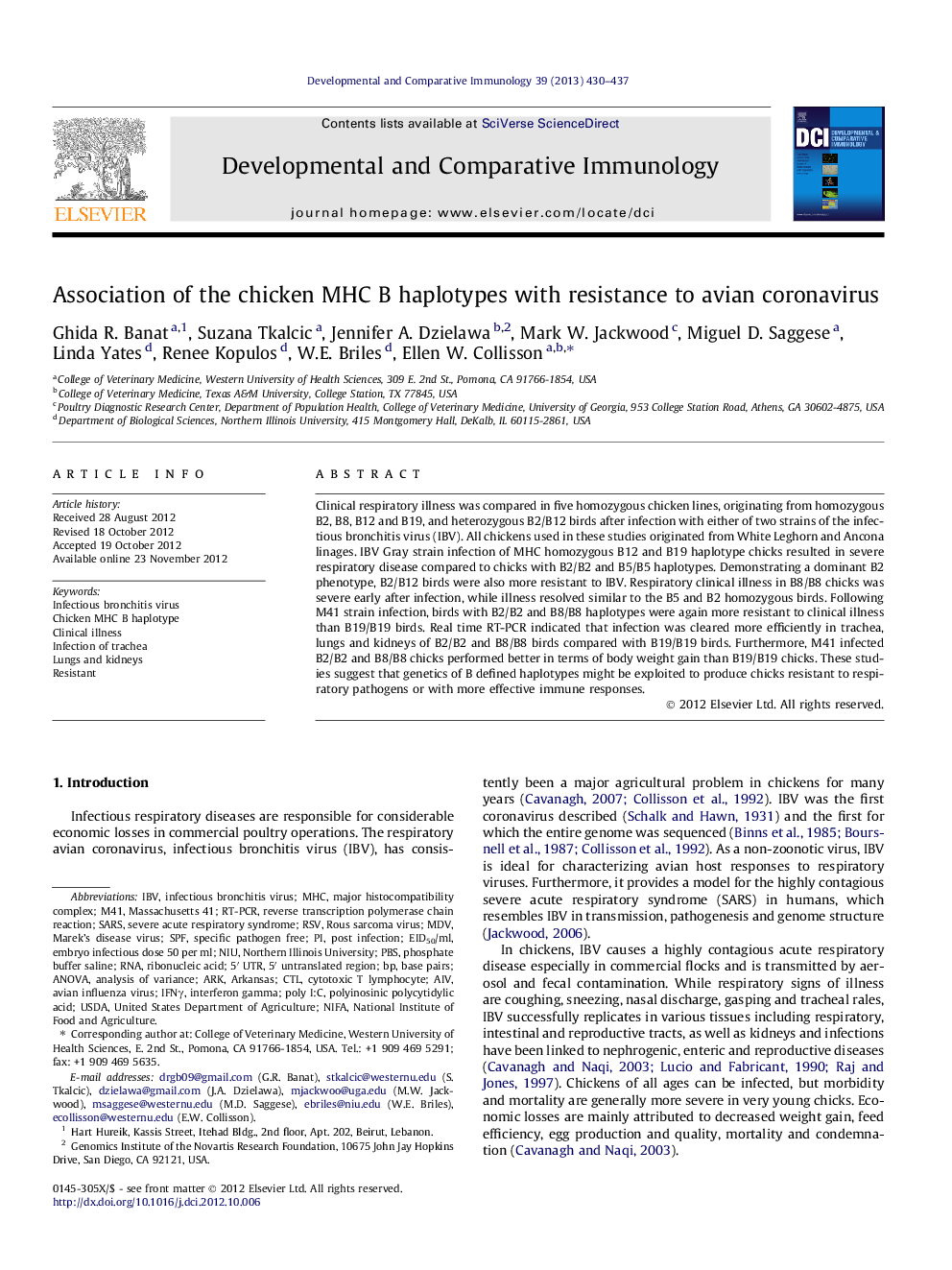| Article ID | Journal | Published Year | Pages | File Type |
|---|---|---|---|---|
| 2429318 | Developmental & Comparative Immunology | 2013 | 8 Pages |
Clinical respiratory illness was compared in five homozygous chicken lines, originating from homozygous B2, B8, B12 and B19, and heterozygous B2/B12 birds after infection with either of two strains of the infectious bronchitis virus (IBV). All chickens used in these studies originated from White Leghorn and Ancona linages. IBV Gray strain infection of MHC homozygous B12 and B19 haplotype chicks resulted in severe respiratory disease compared to chicks with B2/B2 and B5/B5 haplotypes. Demonstrating a dominant B2 phenotype, B2/B12 birds were also more resistant to IBV. Respiratory clinical illness in B8/B8 chicks was severe early after infection, while illness resolved similar to the B5 and B2 homozygous birds. Following M41 strain infection, birds with B2/B2 and B8/B8 haplotypes were again more resistant to clinical illness than B19/B19 birds. Real time RT-PCR indicated that infection was cleared more efficiently in trachea, lungs and kidneys of B2/B2 and B8/B8 birds compared with B19/B19 birds. Furthermore, M41 infected B2/B2 and B8/B8 chicks performed better in terms of body weight gain than B19/B19 chicks. These studies suggest that genetics of B defined haplotypes might be exploited to produce chicks resistant to respiratory pathogens or with more effective immune responses.
